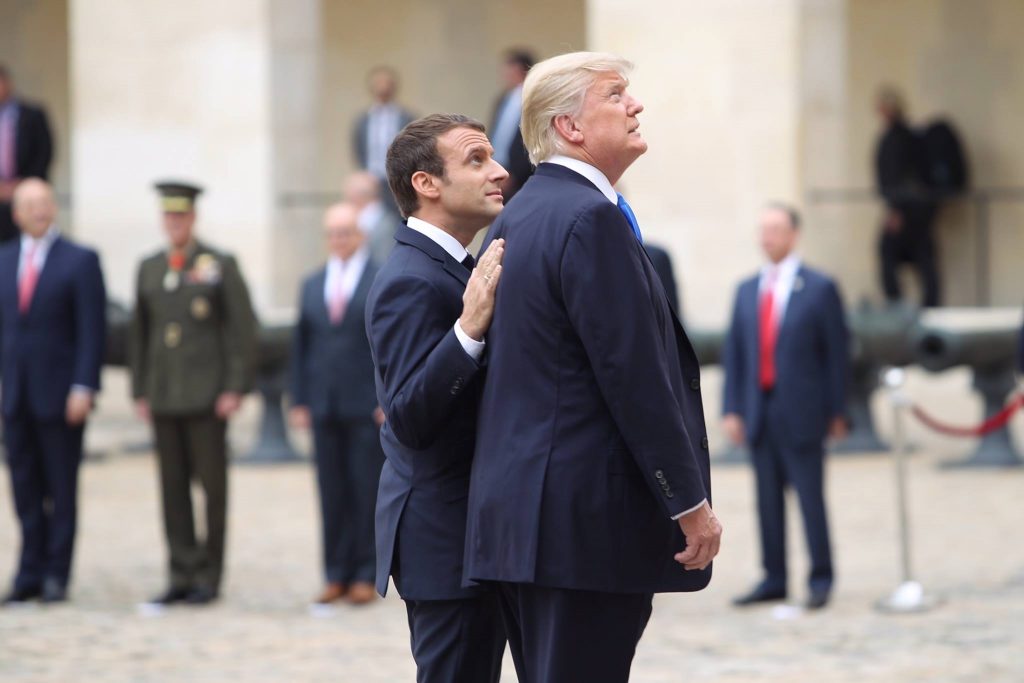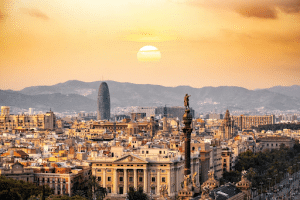
Donald Trump has welcomed French President Emmanuel Macron as his first state dinner guest, a positive sign of the unique relationship between the two countries’ leaders.
Macron and his wife, Brigitte, visited the Lincoln Memorial before joining the President and First Lady at the White House. They planted a French oak tree together on the South Lawn, then travelled for dinner at George Washington’s Mount Vernon estate.
The trip was not all about pleasantries, however. Hot on the agenda for the two leaders were international trade deals, tariffs, and the presence of U.S. troops in Syria as part of broader international efforts. Macron also gave a well-received speech to Congress, in which he seemed to rally against Mr. Trump’s more controversial policies.
While Trump and Macron have built an unlikely bonhomie, a key point of contention between the pair are planned U.S. tariffs on steel and aluminium imports from Europe, due to take effect on May 1st. In response, the EU has targeted nearly $8 billion in U.S. exports for reciprocal tariffs – raising the prospect of a trade war between the two long-standing allies.
The effects on businesses across both continents would be substantial. Export-driven businesses on both continents would see their margins reduced significantly, potentially leading them towards greater trade co-operation with Asia. China, which has begun to ease restrictions on foreign businesses, could be a kingmaker in this sense.
The U.S. administration claims the tariffs are to protect its interests from foreign competition. President Macron, with his reputation as the ‘Trump Whisperer’, seems like he may have convinced him otherwise.
The strength of the relationship between Trump and Macron is, on paper, a curious one. The two leaders are strikingly different in many respects, with a significant age gap and a difference in policies. Mr. Macron is seen as a liberal centrist with cross-party support in France.
Macron however has seen an opportunity in courting Trump on the world stage. Brexit has left the UK in a position of weakness, while electoral troubles have plagued both Theresa May and Angela Merkel. With the UK and Germany indisposed, Macron can present France as the United States’ keenest ally.
The reluctance of some world leaders to embrace Trump has been keenly felt by the U.S. administration, who would be happy even with tacit support from abroad. Macron can offer this all-important public backing for Trump, but only in return for his support for France.
His ultimate aim is not just to improve his own country’s position, but to put it at the centre of a European revival. His latest gambit arguably came at the expense of Angela Merkel, who visited Trump just days later. Many see Macron as a natural successor to Merkel as de facto European figurehead, as the German Chancellor’s star has begun to wane.
Striking a deal with Trump to exclude Europe from new U.S. tariffs, such as on aluminium and steel, would be a significant gesture in this regard. It is also a dangerous game, though, given European voters’ general disdain for the sitting American President.
Macron has already shown that he can strike a balance between supportive and resolute, however. His firm handshake when the two men first met, and criticism of Trump’s position on the Paris climate accord, have been reflective of this approach.
Much will depend on whether Macron can continue to demonstrate that he is setting the agenda – a tough balance, given the U.S. President’s preponderance for power plays. If he can continue to be ‘firm but fair’ and secure his much-vaunted trade deals, the pair might solidify their special relationship.
We’ll endeavour to keep you up-to-date on the latest business news around the world. For more information on starting a business in France or the United States, or for any more business advice and services, don’t hesitate to contact us.



